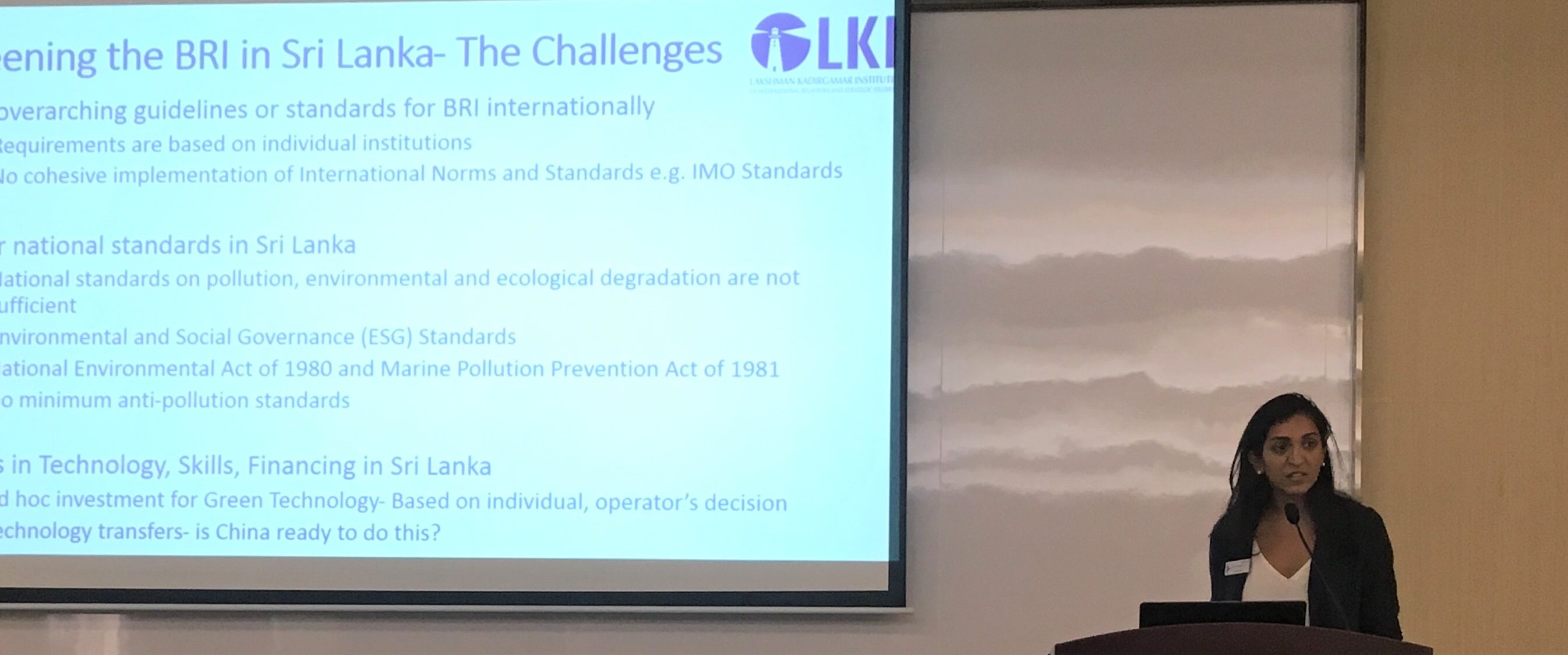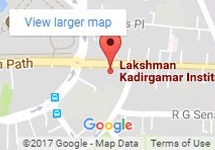
Reading Time: 2 min read
Divya Hundlani, Research Associate at LKI, spoke on “Navigating the Challenges of a Green Belt and Road Initiative (BRI) in Sri Lanka” at the Second Interdisciplinary Forum in Belt-Road Connectivity and Eurasian Integration: Meeting the Culture. The forum was organised by Beijing Normal University- Hong Kong Baptist University, United International College (UIC) and held in Zhuhai, China, on 26-27 March 2018.
Ms. Hundlani discussed the challenges of ‘greening’ the infrastructure investments in Sri Lanka that are related to China’s BRI. Focusing on two of China’s major investments – the Colombo International Container Terminals (CICT) at the Colombo Port and also the Hambantota Port – Ms. Hundlani reasoned that Sri Lanka must set strong normative standards as to how sea ports are developed under the aegis of the BRI, including standards and regulations that would embrace low pollution policies and mitigate impact on ecological surroundings.
She also noted that Sri Lanka can protect its own environment and mitigate the damage from air and water pollution by following international regulations and benchmark ‘green port’ policies. By nurturing pro-green policies in its economic development and more broadly, as a key principle in its foreign policy, Sri Lanka can ensure a significantly more positive impact from BRI investments and its port developments.
In her presentation, Ms. Hundlani highlighted that China has promoted a pro-green, environmentally friendly agenda for its international investments through new financial institutions like the Asian Infrastructure Investment Bank (AIIB). The AIIB has an Environment and Social Framework which supports the Paris Agreement to mitigate the impact of climate change, and encourages ‘green economic growth’ by promoting energy conservation and the usage of renewable sources, sustainable land use management and low-carbon technologies.
The Forum and presentation was attended by policymakers and academics from 15 countries and regions including Russia, the US, Bangladesh, Cambodia, Vietnam, Kazakhstan, India, Sri Lanka, Malaysia, the Philippines, Singapore, South Africa, Hong Kong, Macau, and mainland China; university students from UIC; and representatives of think tanks.



